Biggest health crisis in 100 years, shredded economy, political unrest: How can Joe Biden beat COVID?
America’s COVID crisis is the gift Donald Trump has left behind which threatens to engulf Joe Biden’s White House for the next four years.
News
Don't miss out on the headlines from News. Followed categories will be added to My News.
THE COVID fight ahead of Joe Biden is one of the largest challenges inherited by an incoming US President in modern times – and he might have to be a “genius” to prevail.
With more than 330,000 COVID deaths at the end of 2020, and with experts predicting new cases could spiral towards one million a day, Mr Biden faces a huge task to unite the US behind his COVID plans.
“Biden faces a public health emergency on a scale we haven’t experienced in 100 years, an economic crisis like we haven’t seen since the Great Depression, and a troublesome degree of political dysfunction,” says Professor Brian Carso, who runs the history and government honours program at Misericordia University in Pennsylvania.
Outlining his plans to tackle COVID days before his inauguration, Mr Biden said he would rename the Trump administration’s Operation Warp Speed to Covid Response.
Labelling Donald Trump’s response as “dismal” he pledged a A$2.5 trillion Covid relief package and said he would boost federal support.
This includes enacting the Defence Production Act to boost vaccine production and enlisting FEMA to speed mass distribution of the vaccine as part of his plan to achieve 100 million jabs in his first 100 days in office.
Retired medicos and the nation’s huge pharmaceutical chains, which told him they could perform up to 100 million jabs a month, would step in to his army of “vaccinators”.
With American deaths topping 4,600 a day and 400,000 in total, 80 per cent of those aged over 65 years, he warned there were more trying times ahead.
“Truthfully we remain in a very dark winter,” he said.
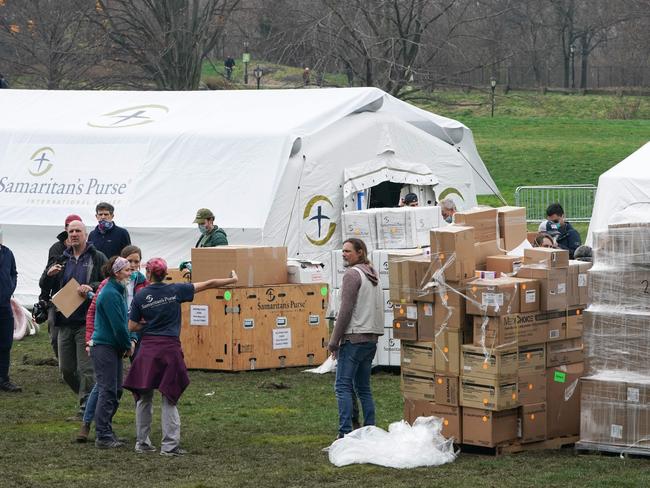
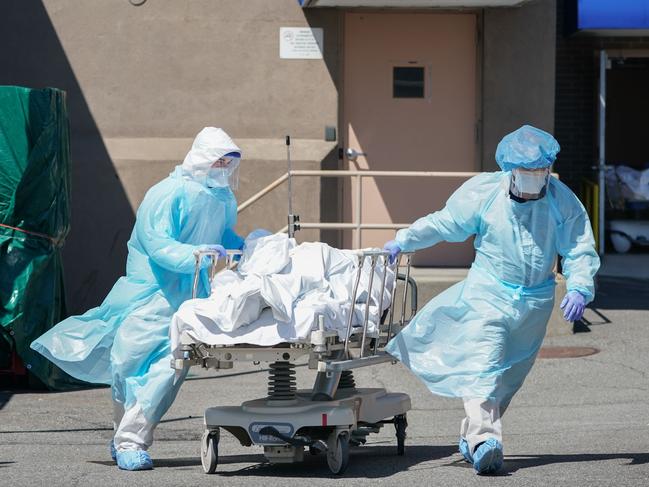
Prof Carson said managing the pandemic could consume the full four years of Mr Biden’s term – and that he may have to be a “genius” to overcome the politics which has been a constant companion of the virus in the US.
“The public health component of the COVID crisis will certainly define the first half of the Biden presidency, until a sufficient number of vaccinations gets us to herd immunity. At the same time, a vast number of families, businesses, schools, and cultural institutions will need federal programs to rebuild from the economic wreckage and this could easily stretch out across the entire Biden presidency.
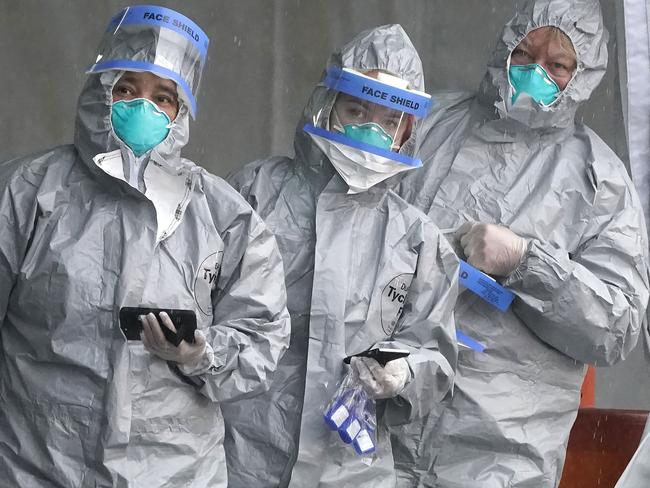
“The virus also exacerbated political dysfunction as a significant portion of the population politicised masks and dabbled in conspiracy theories. If Biden can lower the temperature in this regard, then we’ll know he’s a genius.”
Mr Biden has been careful not to over-promise on his proposed solutions to rein in the virus. Indeed, he has said virtually nothing about what success for him would look like in terms of targets for number of cases and deaths in the US in his first year in office.
“Here is the simple truth: Our darkest days in the battle against COVID are ahead of us, not behind us. I’ve seen no evidence to suggest it is under control,” Mr Biden said, supported by top White House disease adviser Anthony Fauci, who said December’s 63,000 deaths could be dwarfed in January following millions of Americans travelling over the Christmas-New Year break.
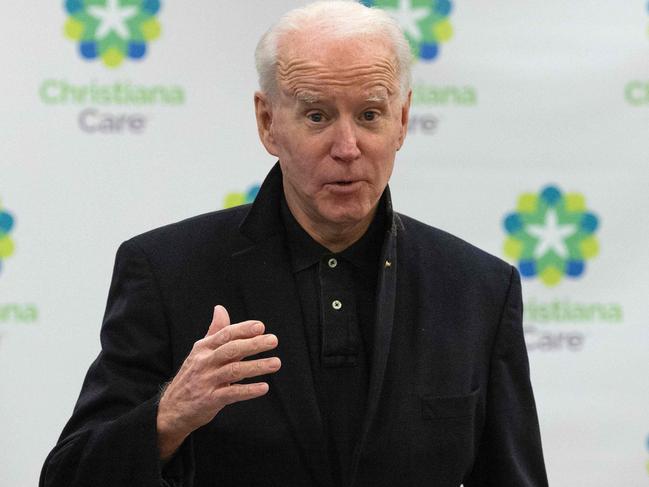
“We’re in such a surge that has just gotten out of control in many respects. If you look at the history going back to the late winter, early spring, of 2020 we had a surge, then we had another surge in the summer and right now, we’re right now in a surge whose incline and whose inflection is very sharp.
“We are in a very difficult situation and we never got down to a low baseline where you can actually control community spread by identification, isolation and contact tracing.
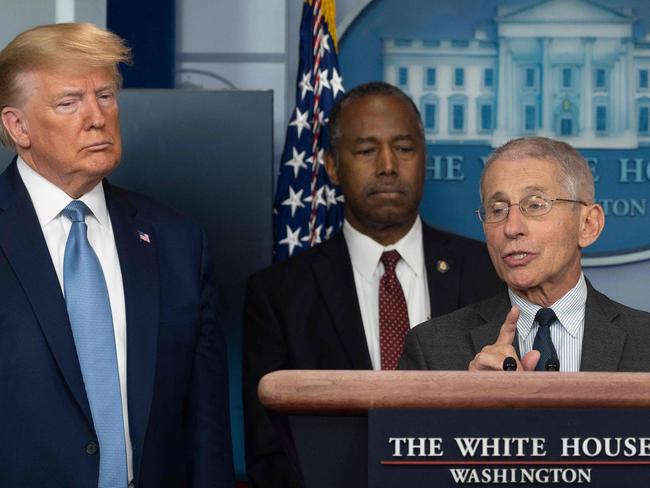
“When you get to the numbers that we’re in right now it really is very very difficult to do effective identification, isolation and contact tracing. That’s what we’re concerned about, that in addition to the surge we’re going to have an increase superimposed upon that surge which could make January even worse than December. I really hope that’s not the case, but it certainly is possible.”
For his part, Mr Biden will implore Americans to take a long view to getting themselves out of “the mess” they are currently in.
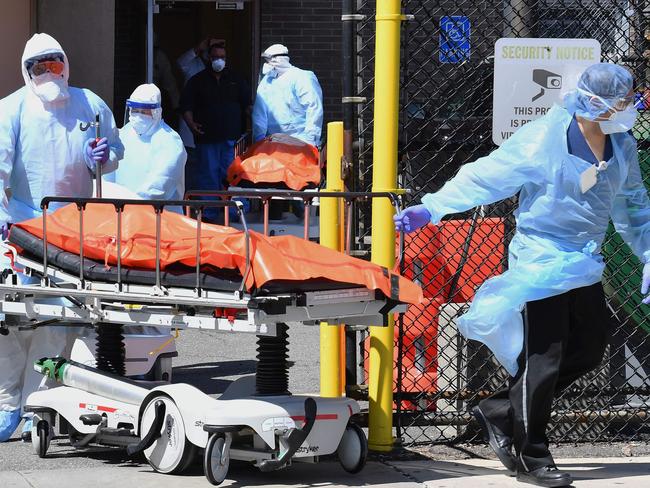
“My first 100 days won’t end the COVID-19 virus. I can’t promise that,” Mr Biden said. “But we did not get in this mess quickly, we’re not going to get out of it quickly, it’s going to take some time. But I’m absolutely convinced that in 100 days we can change the course of the disease and change life in America for the better.”
He has spelled out three clear aims: to get all Americans to wear a mask for at least 100 days; getting 100 million people vaccinated in his first 100 days in office; and getting most US schools back open.
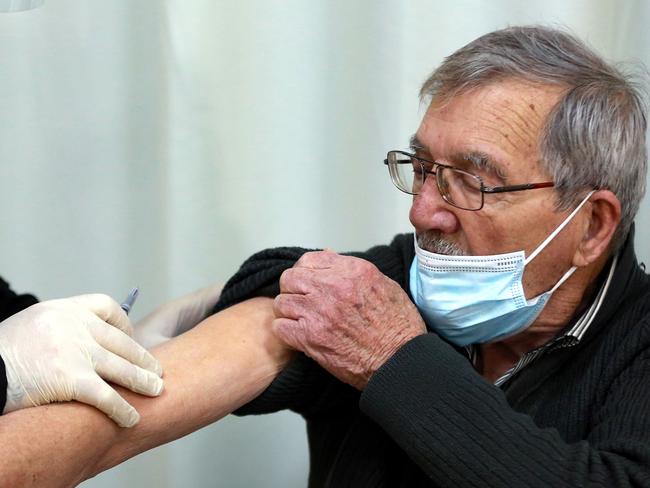
He knows he cannot order all Americans to wear masks, except for when they are in federal buildings or on planes, trains and buses. Instead, he will make a personal plea to his fellow citizens, many of whom refuse to wear a mask despite state mandates to do so. The fact Donald Trump rarely wore a mask and insisted people were free not to if they didn’t want to will also make the job harder.
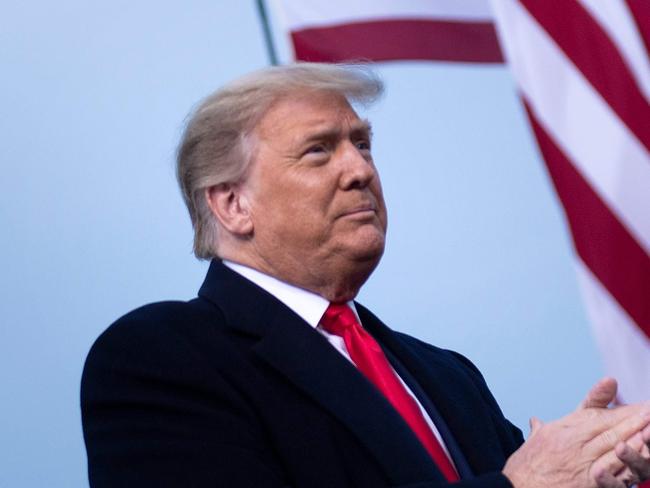
“I’m going to speak directly to the American people: ‘We need your help. Wear a mask for just 100 days, to help yourself, your family, and your community … It’s not a political statement; it’s a patriotic act’.”
The new administration faces a huge logistical task to roll out the vaccine to 330,000 million people across 50 states and needs strong support from Congress.
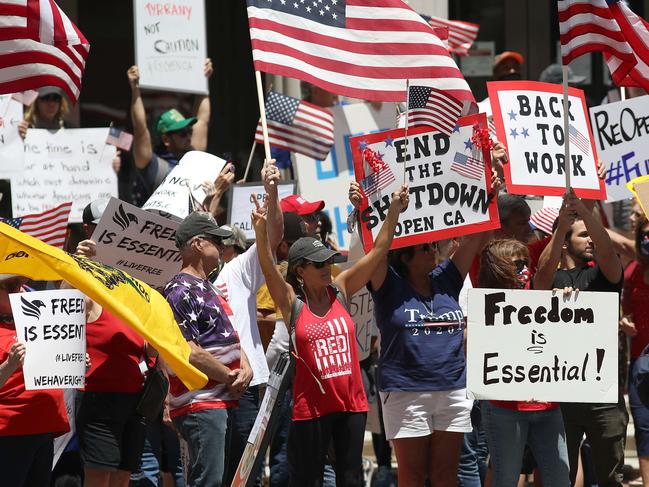
Already, the rollout schedule is hopelessly off the rails, with only 10 million doses delivered by mid-January compared to a promised 20 million by the end of 2020. In this context, reaching 100 million vaccinations in 100 days would be a mighty achievement.
America has a population of 328 million.
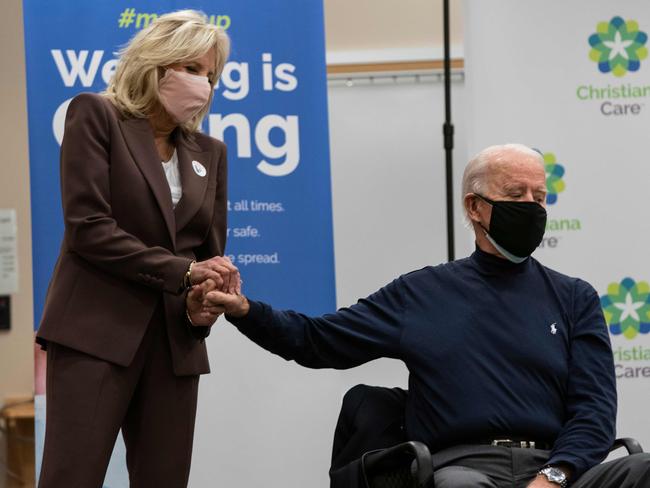
Mr Biden has already signalled a major change in how the vaccine is distributed, saying he wants all available doses to be used as soon as possible, rather than holding back stock for follow-up second shots.
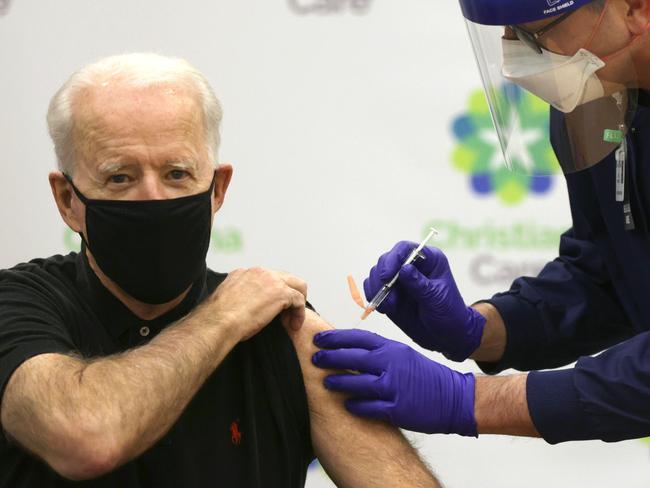
Meanwhile, State Governors have been heavily criticised for closing down schools and Mr Biden says he agrees it’s time for kids to be in classrooms. His plan involves rapid testing for students once a week and at least twice a week for teachers. This will cost billions to sustain, at least $A14 billion for three months.
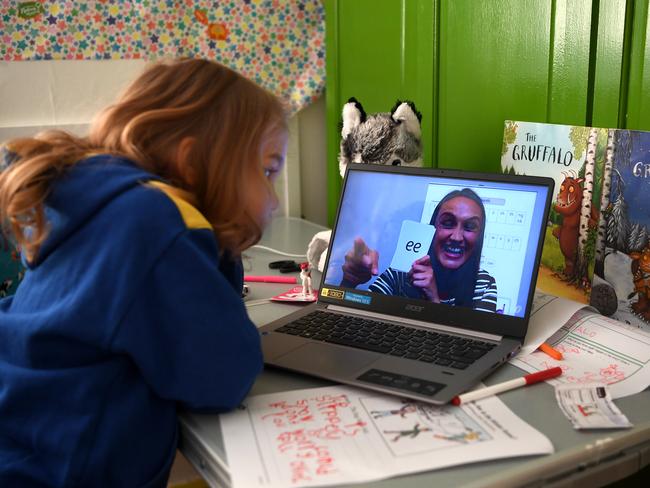
Professor Ezekiel Emanuel told NPR that Mr Biden would almost certainly take a more co-ordinated COVID response.
“You are going to see, I think, close work with states to get all the states singing from the same hymnal so that we don’t have what has, you know, transpired, which is different states doing different things. And you’re also going to see a rebuilding of the CDC,” Prof Emanuel said.
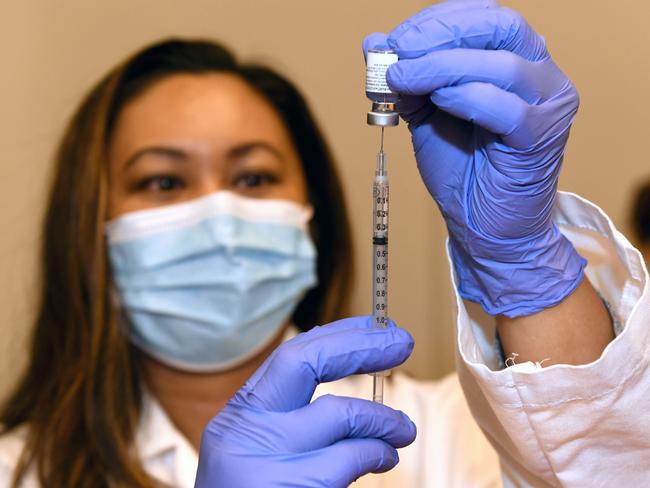
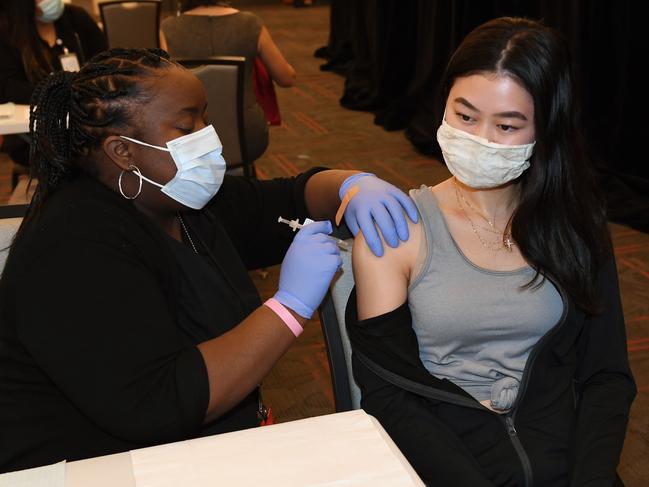
The success of his Presidency may well hang largely on his ability to deliver on these aspirations without resorting to wildly unpopular lockdowns which have crippled the US economy, attracted armed protests and even led to the arrests of 13 people for planning to kidnap Michigan Governor Gretchen Whitmer.
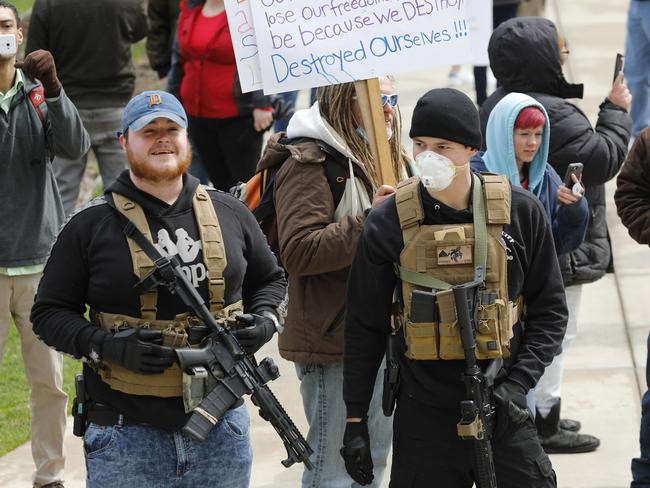
Dr Celine Gounder, a member of the Biden-Harris transition COVID advisory board, said the Biden-Harris team doesn’t have a plan for a national shutdown.
“Shutdowns, or lockdowns, are really not on the table, at least not from the Biden-Harris team,” Dr Gounder said. “We need a more nuanced approach.
“We can be much more targeted geographically. We can also be more targeted in terms of what we close.”
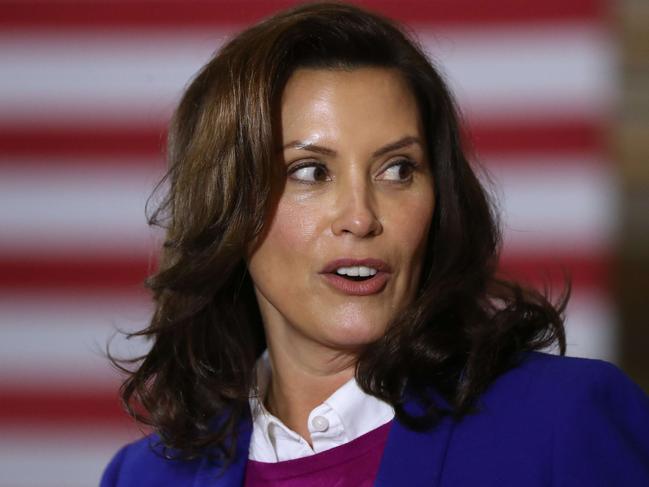
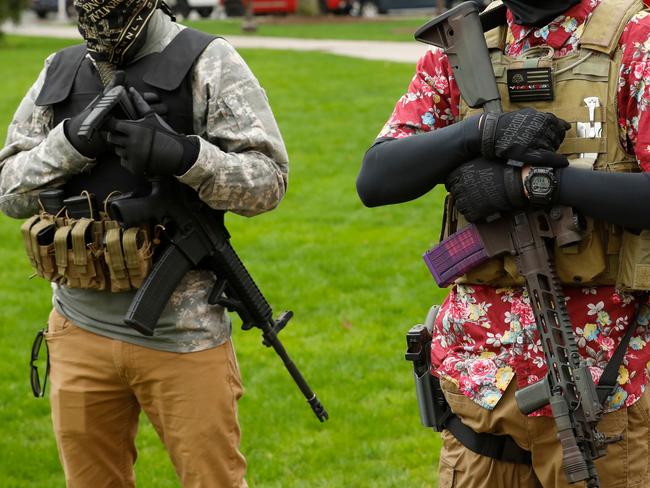
Another adviser, former US surgeon general Dr Vivek Murthy, said national lockdowns were recommended in the spring when scientists didn’t know as much about how the disease spreads and people were less fatigued from the pandemic.
“We’re not in a place where we’re saying, ‘Shut the whole country down’,” Dr Murthy said. “If we don’t do that, what you’re going to find is that people will become even more fatigued, schools won’t be open to children and the economy will be hit harder.”
Originally published as Biggest health crisis in 100 years, shredded economy, political unrest: How can Joe Biden beat COVID?



